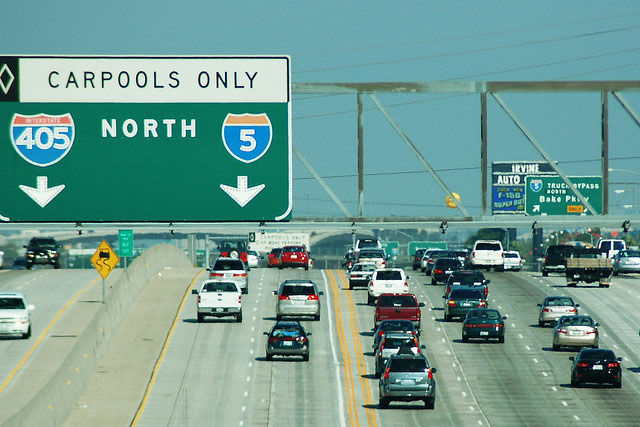
Long commutes to work may be hazardous to your health. Longer daily drives are associated with decreased fitness and increased weight, a recent study from Washington University suggests.
While other studies have examined the amount of time spent in the car, this study looked specifically at driving distance, said Christine Hoehner, the study’s lead investigator and an assistant professor in the division of public health sciences at the Washington University School of Medicine in St. Louis.
“It’s an important part of people’s daily routine and it affects a lot of people,” she said. “Unlike TV viewing, which has gotten most of the attention when you think about sedentary behavior, commuting distance, or time you spend commuting in a car, isn’t something you can change as easily as just turning off the TV.”
Researchers looked at the commuting habits of nearly 4,300 residents in Dallas-Fort Worth and Austin, Texas. They used ArcGIS9 software (a geographic information system, rather than relying on self report) to calculate commuting distances, measuring the shortest route to work. They also compiled information on participants’ CRF, body mass index (BMI), and metabolic factors including waist circumference, cholesterol levels and blood pressure.
The study determined that people who drove 10 or more miles to work were more likely to have higher blood pressure, while those with commutes of 15 miles or more were less likely to participate in physical activity and were linked to having a greater waist circumference and a higher BMI.
These outcomes were true even when researchers accounted for physical activity, which suggests that there may be something about the commute itself that leads to poorer health.
“We can hypothesize that if two people are equally active but one person has to commute a further distance than the other, they are perhaps burning fewer calories, so that might be over time, leading to higher weight,” she said.
Hoehner pointed out that there may be other mechanisms at play that the study didn’t measure, such as longer commutes may equate with getting less sleep, which has also been linked to increased weight gain, or they may be snacking more in the car.
Why the higher blood pressure? “People who commute longer distances might be faced with more daily stress, especially if they’re faced with traffic congestion on a daily basis,” Hoehner said.
Although these mechanisms – sleep, diet, stress – were not included in the study, Hoehner said it’s still important to note that “longer commuting distances is associated with higher weight, lower fitness levels and higher blood pressure and all these are strong predictors of cardiovascular disease, diabetes and some types of cancers.“
For many people, shortening the commute to work or active commuting – such as biking or walking to work – is not a feasible option. So does this mean you’re doomed if you have to commute a long way for work?
Hoehner doesn’t think so.
“I think the message is that people just need to find ways to build physical activity into their day – making time to walk during breaks at work and walk after work,” Hoehner said. “I think the other message too is that when you do have long commutes and a desk job, is to try to find ways not to sit so much.”
“Driving to work has become a part of American life, so there’s no reason why taking walk breaks at work can’t become a part of daily life too,” she said.





